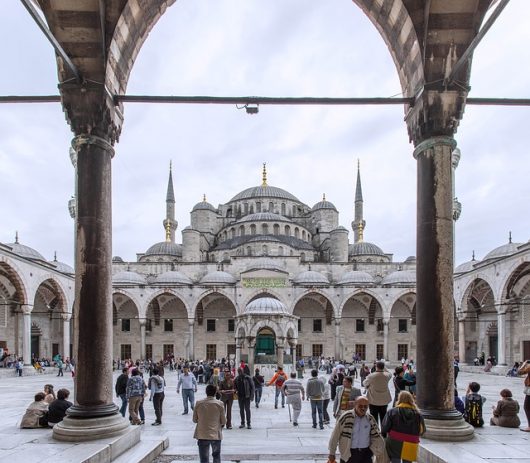
Turkey is a country where there is a lot of misinformation online. Recently, there have been many ups and downs in the country’s policies, and it is difficult to collect the top 10 facts about the living situation in Turkey due to the great instability caused by continuous changes. Below are the main facts about living conditions in Türkiye.
Top 10 Facts About Living Conditions in Turkey According to the UNDP Human Development Index (HDI), Turkey ranks 71st. The UNDP HDI is an indicator of many trends regarding the quality of living conditions around the world. The dynamics that the HDI focuses on are mainly health, education, income, gender, and human security. Turkey has been increasing its HDI since 1990, but the rate of increase has been declining since 2010. 51 percent of Turkish citizens between the ages of 15 and 64 are in paid employment. According to OECD statistics, 51 percent of Turkish people between the ages of 15 and 64 are in paid employment. Unfortunately, this rate of 51 percent is 16 percent below the average of OECD countries. Another important issue is that of income inequality. Most people experience either the problem of unfair income distribution or the need for unfair working hours.Currently, the minimum wage in Turkey is about 1,600 Turkish Lira, or $260. 63% of people say they are satisfied with the quality of the water. Unlike in the United States and most European cities, drinking tap water is not a preferred option in Turkey. The current government has taken steps to improve the quality of water in the country, and its efforts have shown notable progress. Although the picture seems brighter than it was a few years ago, more measures are still needed to satisfy the living conditions of water quality. Trying to understand the living conditions in Turkey by looking at Istanbul is often inaccurate. Cities such as Istanbul, Ankara, Bursa, and Izmir have fairly high quality of life indices. Overall, these cities offer better living conditions for individuals than Turkey, which may lead to occasional internal migration. The lack of political stability in the country has affected living conditions. For many years, the country’s political scene has seen conflicting interests between left-wing and right-wing parties, and in July 2016, it faced a deadly coup attempt. The unstable political scene affects various power relations that directly affect the living. The situation of the Turkish people.People work very long hours to earn money. According to the OECD Better Life Index, about 34% of Turkish citizens work exorbitantly long hours. Only four universities are ranked in the top 500 by Times Higher Education. The quality of education is an issue that affects the living conditions of people living in Turkey. Quality education is not equally distributed in all cities across the country. In fact, to get a world-class qualified education, you often have to live in a big city. According to Times Higher Education, only four Turkish universities are ranked in the top 500 in the world: Koç University, Sabanci University, Bilkent University, and Bogazici University. The weak social network between communities is an issue in the living environment. Due to its geographical location, Turkey’s demographics are often influenced by European, Asian, and Middle Eastern motifs. The lack of social network between communities is generally caused by favoritism of modernism or conservatism in certain groups of people, rather than being caused by ethical issues. Although Turkey is not an Islamic state, the majority of its citizens are Muslim, and various Islamic practices by groups with different interests exist in the country.As a result, religious interests and people’s characteristics may act as discriminatory forces in society. Taxation is a major issue in Turkey. The tax system in Turkey is progressive, and citizens usually pay between 15 and 35 percent tax on their salary income. The main problem with the Turkish tax system is that the tax rate on products in the market can be higher than the items being purchased. Today, the tax issue is very prominent, especially on imported goods. The country’s historical and cultural environment is vibrant. Overall, Turkey is still a safe and healthy place to live. Every city has its own cultural and historical beauty that amazes and fascinates visitors and residents. Starting with Istanbul’s stunning views, rich architecture, and cultural enclaves, the country still has its own way of providing a satisfactory standard of living. Cultivating a Sense of Contentment
Despite Turkey’s hardships, many in the country are satisfied with their lives, and while the country is still far from full equality in living standards, financial, social and economic changes could continue to steadily improve the lives of its people.
– Oltyun Dormerzel
Photo: Pixabay


